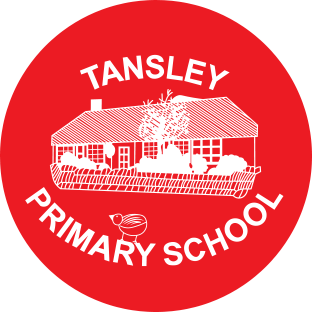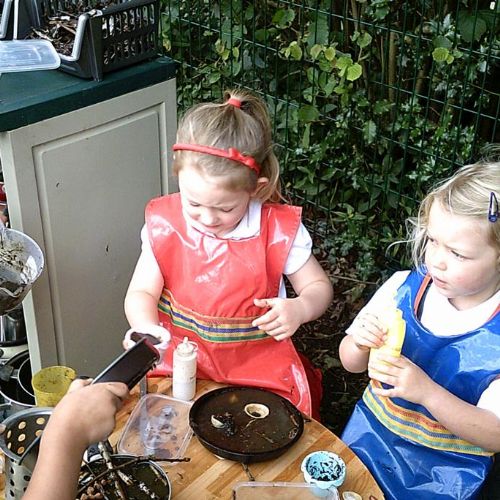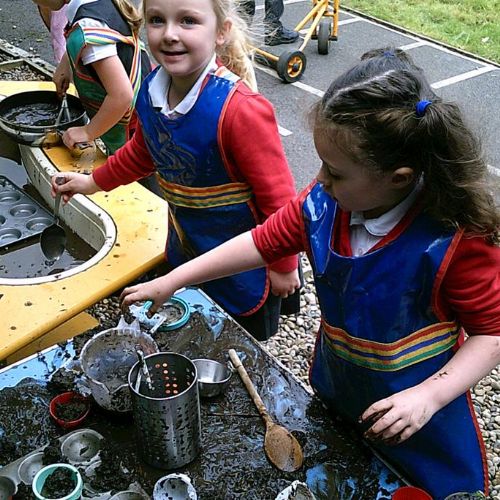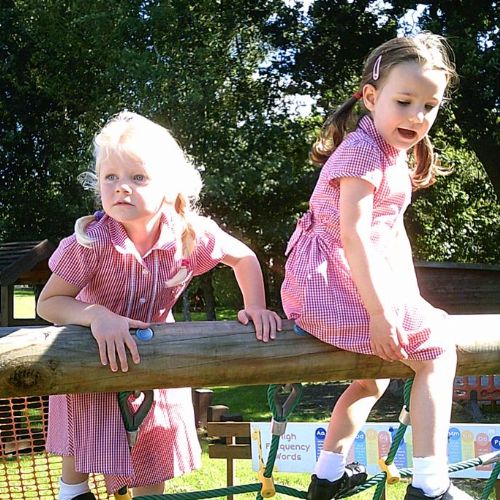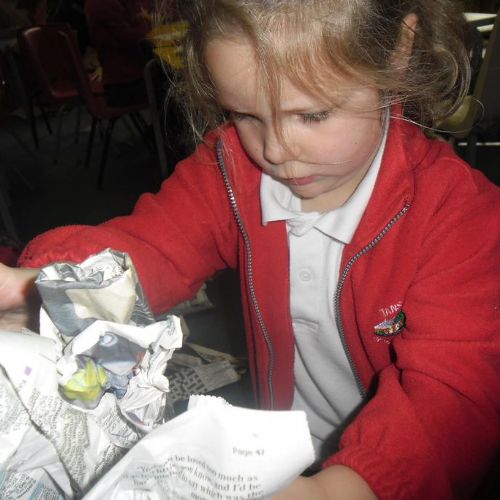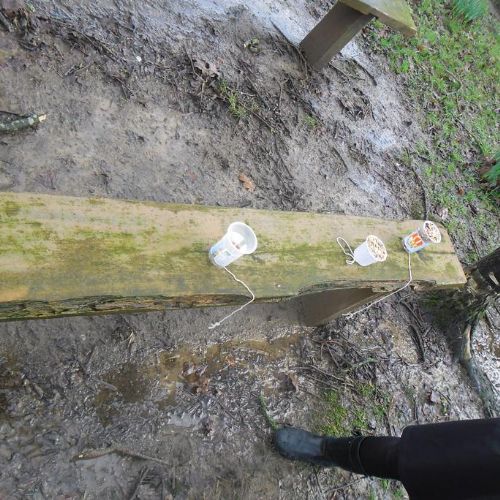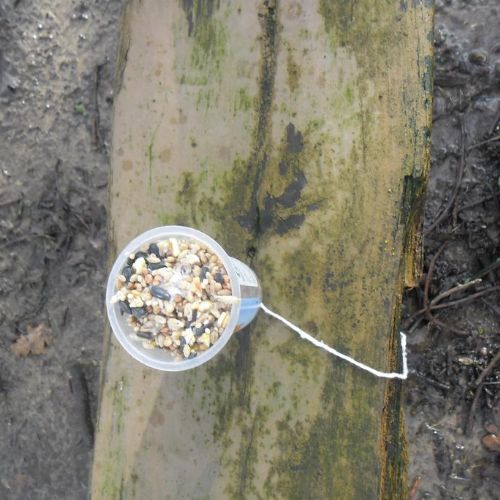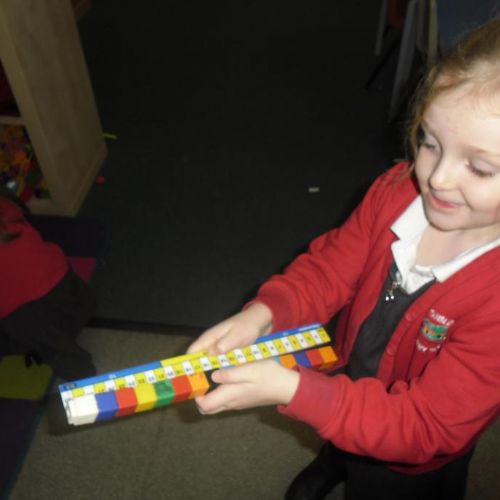Early Years Foundation Stage
Our ethos in Early Years is to support children’s personal, social and emotional development so that they feel safe and secure and are ready to learn. Through the seven areas of learning we provide topics that excite and engage children, building on own interests and developing their experiences of the world around them. We recognise that all children come into our setting with varied experiences and all staff work hard to ensure that the learning opportunities provided widen their knowledge and understanding of the world, setting ambitious expectations for all children.
Intent
The curriculum in Early Years is designed to provide a broad and balanced education that meets the needs of all pupils. It facilitates them to gain the skills, knowledge and understanding, as they start out on their educational journey, supporting them to progress from their individual starting points and preparing them for the next stage of their education.
We aim to provide a broad and balanced curriculum that meets the needs of all pupils. It will facilitate them to gain the skills, knowledge and understanding, as they start out on their educational journey, supporting them to progress from their individual starting points and preparing them for the next stage of their education. We offer a balance of child-initiated and adult-led learning using continuous play and small group activities.
We aim to provide children, with a well-structured, safe, active learning environment both indoors and outdoors. This will enable them to develop the skills, attitudes and understanding that will form the basis of lifelong learning and encourage them to become active members of a diverse and constantly changing society.
Implementation
Through the EYFS at Tansley Primary School we follow the Early Years Statutory Framework for the Early Years Foundation Stage. This framework specifies the learning and development in the Early Years and provides prime and specific areas of learning we must cover in our curriculum.
We have a curriculum that is child-centred and we encourage active learning to ensure the children are motivated and interested. We take time to get to know children’s interests and their likes to support learning. All areas of the EYFS curriculum are followed and planned for to ensure there is a broad, balanced and progressive learning environment and curriculum.
The children will learn new skills, acquire new knowledge and demonstrate understanding through the seven areas of the EYFS curriculum.
The Prime areas:
- Personal, Social and Emotional Development
- Physical Development
- Communication and Language,
The Specific areas:
- Literacy
- Mathematics
- Understanding the World
- Expressive Arts and Design
A vital aspect in the development of essential knowledge and skills is the use of continuous provision. This means that children are using and developing taught skills throughout the year on a daily basis. Continuous provision practice and principles begin in EYFS and support children to develop key life skills such as independence, innovation, creativity, enquiry, analysis and problem solving. During the school day, children will have an opportunity to work independently, work collaboratively with their friends and with members of staff.
Children in EYFS learn by playing and exploring, being active, and through creative and critical thinking which takes place both indoors and outside.
We ensure activities support the Characteristics of Effective Learning to ensure learning takes place. These are:
Playing and Exploring – children investigate and experience things, and have a go
Active Learning – children concentrate and keep on trying if they encounter difficulties, and enjoy achievements;
Creating and Thinking Critically – children have and develop their own ideas, make links between ideas and develop strategies for doing things.
Impact
Children’s progress is monitored closely from the moment they start, and their journey is tracked throughout the year allowing appropriate support and challenge to be put in place. Our assessments are integral to effective learning and teaching. The results of this are children who have a sense of belonging, have a positive disposition to learning and are ready to move through the school. They transition into Key Stage One with confidence and a strong character to meet the challenges of an ever changing world.
Children will be able to make links with their learning develop their skills as they are able to use and apply skills learnt within their learning across the curriculum. Children will also be skillful at solving problems and they will have effectively developed their personal levels of resilience and independent learning skills. Children will be successful learners and fully prepared for the next stage of their education as they transition from Foundation Stage to Year One.
The Early Years Foundation Stage (EYFS) sets the standards for learning, development and care for children from birth to five. The Statutory Framework for the Early Years Foundation Stage contains the legal requirements and statutory guidance which we follow. Nursery and Reception classes are referred to as the foundation stage of learning, because it is during this time that attitudes to learning are formed and social skills developed which lay the foundations for future education. At Tansley Primary School we strive to ensure that early years experiences are happy, active, exciting, fun and secure, with the balance of child-initiated play, focused and structured learning to ensure that they enjoy learning to read, write, use numbers, think mathematically, explore their world and make creations.
Areas within the Oaks classroom:
- a writing area containing various writing implements and papers as well as envelopes and examples of good writing
- a book corner containing a range of fiction, non-fiction, poetry and class-made books
- a maths resource area which allows children to select appropriate items to help them solve practical problems
- a creative area containing resources for a range of art, design, music and technology activities
- a construction area containing resources for developing fine motor skills, social interaction and problem solving
- a small world area which allows children to extend fine motor skills, engage in imaginative play and develop language
- an area for sand, malleable materials (e.g. play dough) and water play, where children can engage in practical investigations
- a role play area which can be developed along themed line to cover several aspects of learning in “real life” scenarios
Learning environment
The outside area is seen as an extension of the classroom and the above opportunities will be available outside as well as inside.
Through our curriculum we aim to develop the children as they Play and Explore, be an Active Learner and to have Creative and Critical Thinking.
Assessment
The staff are constantly assessing the children in their everyday activities, play and through more focused adult-led interactions and sessions. We use observations of the children, photos, the work that they do, feedback from parents and comments made by the children to assess where the pupils are working. Evidence is recorded on Evidence Me. The new Development Matters gives statements for the ages of the children. We share this with parents and base the next steps for the children on this.
The planning focus for each term and each week is taken from the Long Term Plan, the agreed focus, the previous week’s findings, the interests of the children and the next steps.
There are 4 key principles that underpin our practice in the Oaks Class at Tansley Primary.
A Unique Child
We recognise that all children are different. We identify and celebrate their strengths and support their areas for development.
Positive Relationships
Our pupils interact well with each other and with the adults in the school. We encourage parents to be involved with their child’s education.
Enabling Environments
Our indoor and outdoor areas encourage exploration, investigation, and independent learning. Our displays and resources are well maintained and reflect current learning.
Learning and Development
Pupils achieve well and make good progress from their starting points. Learning is playful, practical, and purposeful and builds upon prior attainment. Our children enjoy coming to school.
